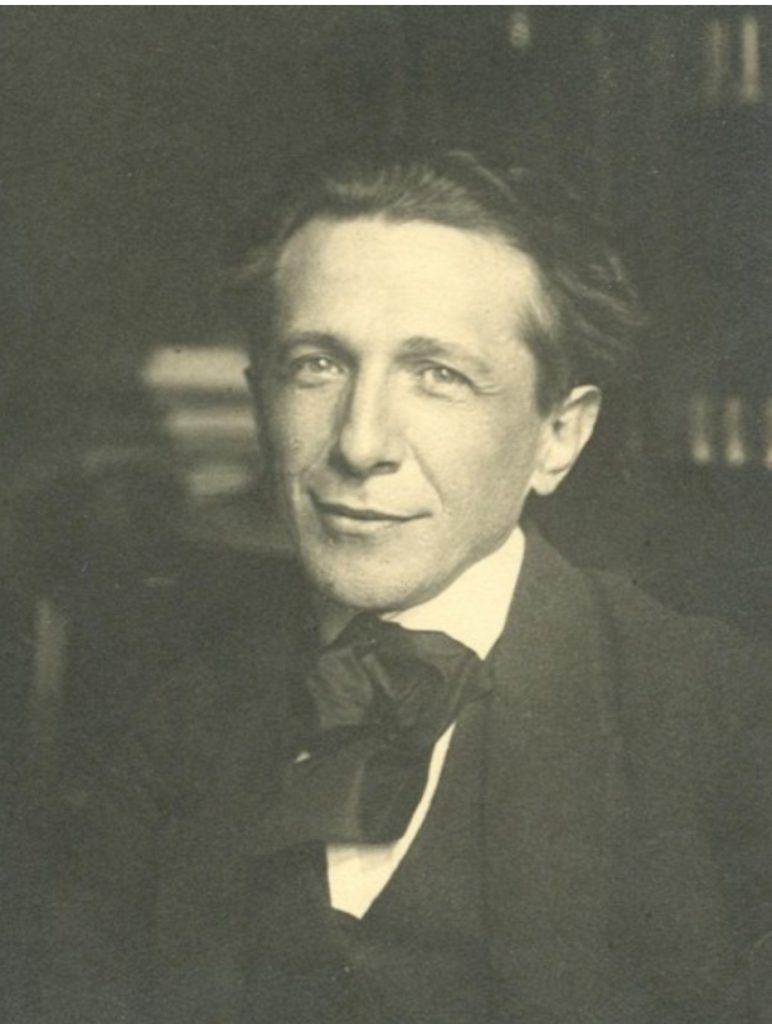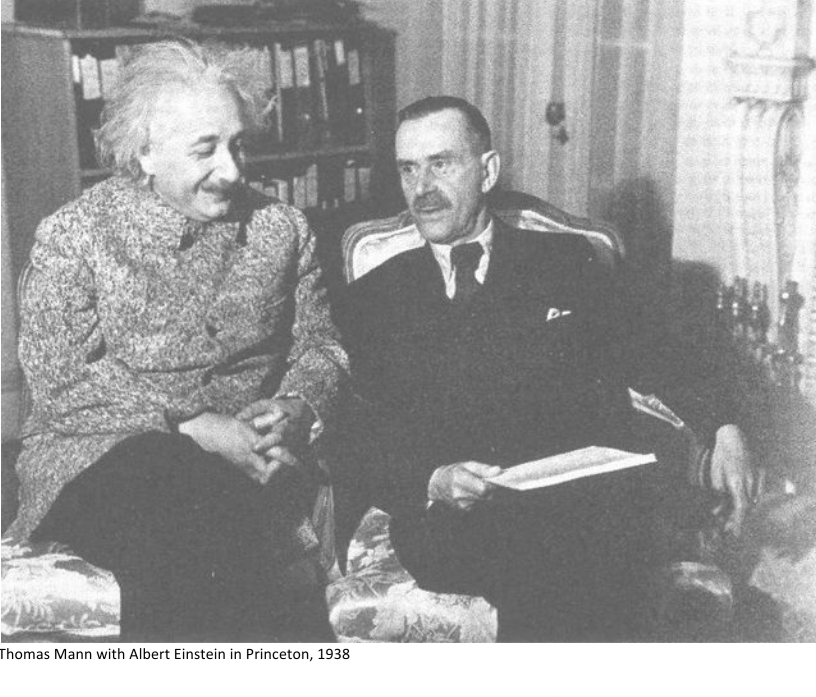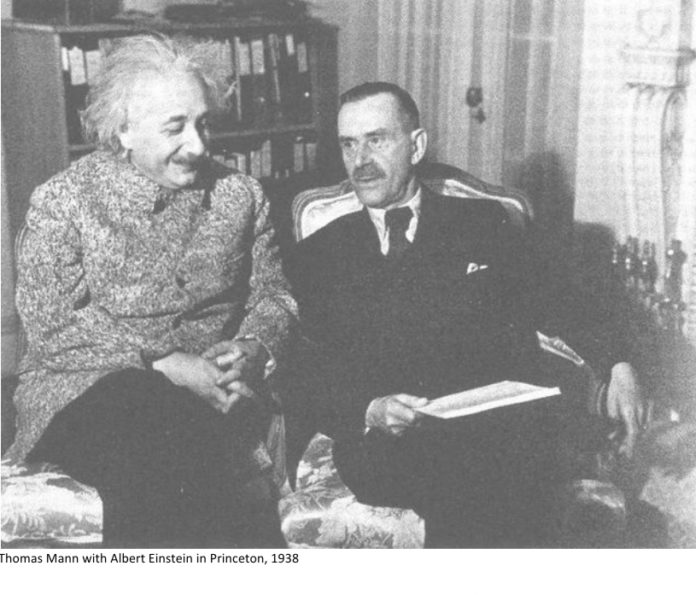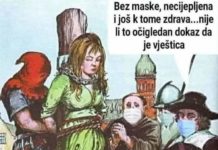Milan plemeniti Šufflay
Monarhofašistički Jugoslavenski režim na brutalan je način, fizički likvidirao Šufflaya, dok je režim komunističke Jugoslavije intelektualno likvidirao Šufflaya izbacivši njegovo ime iz knjiga i sveučilišta, a time, nadajući se, i iz narodne svijesti. Nije pritom Šufflayu nimalo pomogla činjenica što je bio žrtvom monarhofašističke Jugoslavije, protiv koje su službeno istupale i komunističke vlasti.
Monarhofašistiški i komunistički režim imali su zajedničku poveznicu – jugoslavenstvo, dok su im Šufflayev nacionalizam i beskompromisna borba za hrvatsku samostalnost i podrška Albancima i otpor politici Srbije za promjenu povijesno znanstvene istine prema albanskom narodu, kao jednom od najstarijih naroda, predstavljali veliki problem.

Na žalost, ni ostamostaljenjem Hrvatske Šufflay nije u svijesti hrvatskog naroda dobio dostojno mjesto koje je svojom zadivljujućom erudicijom, širinom pogleda i bogatom ostavštinom zaslužio. A riječ je o “aristokratu duha” koji uz Pilara, Lukasa i Kriškovića spada u najvažnije hrvatske političke pisce 20 st.
Šufflay je uporište svojim političkim pogledima pronalazio u povijesti. Duboko je bio svjestan činjenice da je nedostatak povijesnog pamćenja jedan od ključnih uzroka hrvatske nesreće tijekom povijesti, a svjedočimo da je i danas tako. Narodno pamćenje i hrvatsko državno pravo temelj su Šufflayeva nacionalizma, koji je imao samo jedan cilj, obnoviti hrvatsku državu.
Za Šufflayev svjetonazor karakteristična je izrazita zapadnjačka orijentacija.
Na rubu Balkana, na granici Zapada i Istoka, katoličanstva i pravoslavlja, europske kulture i barbarstva, ime hrvatsko, krv hrvatska, ne znači samo naciju! Hrvatska krv tu znači civilizaciju. Hrvatstvo je tu sinonim za sve što je lijepo i dobro stvorio Zapad. I zato je hrvatskoj naciji mjesto na Zapadu i uz Zapad. Hrvatskoj naciji nema mjesta na Balkanu. Tko je veže proti Zapadu, radi proti hrvatskoj povijesti. Tko srlja na Balkan, taj truje hrvatsku krv. Zapad je na hrvatskom tlu apsolutno nadmoćan i ova zapadnjačka dominanta ostaje karakteristikom hrvatske nacije kroz sva poznija vremena. Tako je govorio Šufflay.

Thomas Mann with Albert Einstein in Princeton, 1938
APEL MEĐUNARODNOJ LIGI ZA LJUDSKA PRAVA
125, AVENUE DE WAGRAM, PARIZ
Mnogopoštovani prijatelji!
Mi ne možemo propustiti, a da Međunarodnu ligu za ljudska prava ne upozorima na događaje, koji su dne 18. veljače o.g. [1931.] doveli do umorstva hrvatskoga učenjaka dr. Milana Šufflaya.
Kada je ovaj učenjak spomenutoga dana išao kući, bio je u Zagrebu na cesti iza leđa napadnut i, prema našem izvještaju, željeznom motkom umoren. Slijedećega dana on je ovim težkim ozljedama podlegao i dne 22. veljače je na Mirogoju pokopan uz hrvatske mučenike.
Profesor Milan Šufflay bio je poznat po svojim brojnim znanstvenim djelima i radnjama. Zagrebačke novine nisu međutim smjele izvješćivati o djelovanju ovoga učenjaka, čak je i osmrtnica zaplijenjena, a brzojavne sažalnice nisu smjele biti odpremane. Nije bilo dozvoljeno objaviti vrijeme pogreba, a zabranjeno je bilo izvjestiti žalobnu zastavu na zgradi Sveučilišta. Školsku mladež, koja je prisustvovala sprovodu, policajne vlasti izagnaše iz Zagreba, a hrvatske narodne trobojnice, kojima su bili vijenci urešeni, odstraniše.
Ime ubojice, Branko Zwerger, bilo je poznato. Poznata je bila i organizacija kojoj je ubojica pripadao (“Mlada Jugoslavija”).
Poznato je bilo da je umorstvo dogovoreno u noći od 11. do 12. veljače u stanu zapovjednika grada generala Belimarkovića. Kod toga dogovora sudjelovali su članovi organizacije “Mlade Jugoslavije” Brkić, Godler, Marčec i ubojica Zwerger.
Zagrebačka policija unatoč tome službeno objavljuje dne 19. veljače dne 19. veljače da je počinitelj nepoznat.
Ubojstvu profesora Šufflaya prethodile su sljedeće činjenice:
1. Povodom posjeta kralja Srbije u Zagrebu mjeseca siječnja dostavljena su nizu najuglednijih ličnosti – tako vođi Hrvata dr. Vladku Mačku, dr. Anti Trumbiću, dr. Mili Budaku, sveučilišnim profesorima dr. Filipu Lukasu, dr. Davidu Karloviću, dr. Milanu Šufflayu i drugima – prijeteća pisma s podpisom “Za kralja i otadžbinu”, u kojima ih se čini odgovornim i vlastitom glavom i životom njihovih obitelji, bude li za to vrijeme kraljeva boravka u Zagrebu ikakvih protesta ili demonstracija.
2. Ovoj terorističkoj organizaciji, koja javno nosi ime “Mlada Jugoslavija” održao je kralj Aleksandar javni govor, u kojem je progovorio o odstranjivanju po narodu izabranih hrvatskih narodnih zastupnika, što je proveo. Riječima: “Ja sam odstranio poslenike”, on je sam dao poticaj odnosno nalog da se od njegova formalnog odstranjivanja iz parlamenta imade prići na fizičko, to jest konačno odstranjenje. Kao uzor ima vrijediti 20. lipnja 1928., kada su u beogradskom parlamentu umoreni hrvatski vođe.
Iza toga slijede u vladinoj štampi javni pozivi na umorstva vođa hrvatskoga naroda. Tako piše vladin list “Naša Soga” na Sušaku dne 18. veljače: “čelenke će prskati…” Istoga dana uvečer umoren je u Zagrebu prof. Šufflay. Drugi primjer otvorenoga poziva na umorstvo objavljen je 28. veljače u splitskoj “Zastavi”, daljnji poziv, u mariborskom “Jugoslavenu”. Neki članovi družtva “Mlada Jugoslavija”, koji su imali izvesti umorstva Hrvata u inozemstvu, uhapšeni su dne 12. ožujka kod umorstvenih priprema u Beču te predani bečkim sudovima na postupak.
Delegacija Hrvatskoga narodnoga zastupstva još je dne 25. siječnja 1930. predala Ligi naroda u Ženevi memorandum, koji je istodobno odaslan vladama i organizacijama svih kulturnih država, upozoravajući na stanje u Hrvatskoj. Ovim se memorandumom pred cijelim čovječanstvom diže obtužba protiv absolutističke vladavine kralja Srbije kao i protiv užasa i strahota, što ih vladavina nad hrvatskim narodom počinja. Kako činjenice dokazuju, ove su strahote od onoga doba samo još veće.
S obzirom na ovo strašno stanje mi vas molimo, da Međunarodna liga za ljudska prava poduzme sve da se ovoj bezkrajnoj nasilnoj vladavini stane na kraj.
Ne smije se trpiti da se umorstvo upotrebljava kao sredsto za postizavanje političkih ciljeva.
Ne smije se trpijeti da se ubojice veličaju kao narodni junaci.
Držimo da je samo po sebi dužnost Međunarodne lige za ljudska prava da apelira na sve one koji cijene slobodu i ljudska prava naroda, da se proti strahovladi koja gospoduje u Hrvatskoj, digne najsvečaniji protest. Sve zemlje, naročito Francuzka, Njemačka, Poljska, Austrija, gdje postoje grane Međunarodne lige za ljudska prava, imadu dužnost da se postave kao štit pred ovaj mali miroljubivi prosvjećeni narod.
Mi očekujemo vašu odluku i pozdravljamo vas.
Njemačka liga za ljudska prava.
Albert Einstein
Heinrich Mann
Travanj 1931., Berlin
New York Times
May 6, 1931
Einstein Accuses Yugoslavian Rulers in Savant’s Murder
Charges the Slaying of Sufflay, Noted Croatian Leader, Was Inspired by Government.
Links King to Terrorism.
Increase In Cruelty Seen.
League for Rights of Man is Urged to Take Action
Against “Horrible Brutality” of Belgrade Regime.
Special cable to The New York Times.
Berlin, May 5. Accusing the Yugoslav Government of the murder of a Croatian Professor Milan Sufflay, who was struck down in the streets of Agram [Zagreb] on Feb 18, Professor Albert Einstein and the novelist Heinrich Mann, brother of Thomas Mann, have sent a joint letter to the international headquarters of the League for the Rights of Man in Paris urging a protest against the “horrible brutality which is being practiced upon the Croatian people.” The letter also was signed by the German headquarters of the league. The Paris headquarters, upon receipt of the communication, immediately undertook steps toward an effective protest in Belgrade.
“As the professor was walking home on the fatal day he was attacked from behind with an iron rod, according to our information and felled.” the letter of protest reads “On the next day he died and he was buried on the twenty-second beside other Croatians.”
Noted for Scientific Works.
Professor Sufflay was noted for a long list of scientific books, the letter continues..
“Yet Agram [-> Zagreb] newspapers were not allowed to report his activities and the news of his death was suppressed.” the protest reads on. Condolence telegrams were not delivered. The time of the funeral was not allowed to be made public and the raising of a mourning flag on the university was forbidden. The authorities went so far as to expel those school children who took part in the funeral and to remove wreaths which were bound with the Croatian national colors fom the grave.
“The name of the murderer was known. It was Nikola Jukitsch [-> in fact, Branko Zwerger, see below]. His organization (Young Yugoslavia) likewise is known. It was even known that arrangements for the murder had been worked out on the night of the eleventh in the home of the military commandant of the city, General Beli Markowitsch, at a session in which members of the Young Yugoslavia organization, Brkitsch, Godler, Marischetz and the murderer Jukitsch [-> in fact the real name is Branko Zwerger] took part. Yet the Agram [-> Zagreb] police officially stated the next day that the name of the murderer was not known.
Charges Threats to the Croats.
Turning to the events leading to the murder, Professor Einstein and the other signers charged that when the King visited the Croatian capital in January, numerous leading Croats received letters signed “For King and Country.” in which their lives and those of their families were threatened if they uttered any protest while the King was there. Professor Sufflay received one of the letters, it is charged.
“The name of this terrorist organization was Young Yugoslavia,” the protest continued. “The King, in an address to the organization, told how the Croatian representatives to parliament had been put out of the way at his request. An example of this was the shooting of a Croatian leader [-> Stjepan Radic] on the floor of the house on June 20, 1928.”
Following the King’s visit, the murder of political and intellectual leaders of the Croatians was openly demanded in the government press, says the letter.
“The official organ Nascha Sloga in Suschak, on Feb. 18 wrote, `Skulls will be split.’ The same evening Professor Sufflay was struck down,” the letter says.
In January the delegates to the Croatian National Assembly sent a memorandum to Geneva calling attention to the situation in Croatia.
“The facts show that the cruelty and brutality practiced upon the Croatians only increase,” Professor Einstein’s letter says. “In view of this frightful situation, we urge the International League for the Rights of Man to do everything possible to press this unrestrained rule of might which prevails in Croatia.”
“Murder as a political weapon must not be tolerated and political murderers must not be made national heroes. The League should muster all possible aid to protect this small, peaceful and highly civilized people.”
Sufflay a Histoy Professor.
Professor Milan Sufflay, who was murdered in Agram [Zagreb] on Feb. 18, had been professor of History at Zagreb University for ten years. He had written many books on the history of Albania. In 1920 because of his connection with Croat extremists, he was sentenced to two and a half years’ imprisonment for lese-majeste and high treason. On his release he resumed his political activities.
Protests against the Yugoslav dictatorship of King Alexander have been frequent since the murder of Professor Sufflay and the many “suicides” of Croats and Macedonians in the prisons of Belgrade and Zagreb.
Three Serbs were arrested in Vienna recently who were alleged to have been sent there on a murder mission with the knowledge of the Zagreb Chief of Police.
The bitter feeling in Yugoslavia has resulted in numerous bombings and assassinations.
When King Alexander proclaimed the dicatorship two years ago his chief problem was the deadlock caused by the refusal of Croatia to be dominated by a parliamentary government recruited largely from extreme Serbian sources.
A similar article appeared in the San Francisco Examiner on Sunday May 31, 1931 saying pretty much the same thing.
Remark: From archival material held in Zagreb we know that the name of assassin was not Nikola Jukich (Jukitsch), but BRANKO ZWERGER (hanged in 1943 in Jasenovac). It seems that Einstein and Mann have changed the name to Jukitsch since they lived in Germany, in Berlin, from where they wrote their appeal to Paris. The name of Zwerger sounds German or Jewish, which they may have found unpleasant (and unimportant) for the purpose of this appeal. We are not in possession of the original text, which is written most probably in German. It seems that the original text is in Moscow archives. Namely, during the WW2 the Russians came in possession of all archives of the Ligue de Droits de l’Homme (League of Human Rights in Paris), concerning documents dating before 1945.
Letters of protest
American intellectuals organized by Roger N. Baldwin, Chairman of the International Committee for Political Prisoners, sent the following letter to the Yugoslav representative in Washington on November 24, 1933.
Dr. Leonide Pitamic,
Minister of Yugoslavia,
Washington, D.C.
Sir:
For some years past dispatches in the American and foreign press have indicated that political prisoners in Yugoslavia are suffering inhuman treatment. This committee has noted the reports and has on occasion intervened in behalf of some particular prisoner as have many associations and individuals throughout the world interested in checking persecution for political opinions and activities.
More recently, we have obtained documentary material form one of our associates, Louis Adamic, and American writer of Yugoslav birth, lately returned from a year’s stay in his native land as a fellow of the Guggenheim Foundation. Mr. Adamic’s standing as a writer of integrity and accuracy is above question. We have substantiated to our satisfaction the genuineness of the material he has brought corroborating previous information.
In the light of these reports, and Mr. Adamic’s specific information, we desire to protest, through you, to your government against the whole system of political persecution which marks the regime in Yugoslavia today and particularly against the incredible tortures inflicted on political prisoners under that system. These reports involve authentically reported tortures at police headquarters in Belgrade, Zagreb, Ljubljana, Sarajevo, Skoplye, Novi Sad and other cities, as well as in various state penitentiaries. They affect the various groups opposed to the policies of the present government: the Croat, Slovene, Moslem, and Macedonian nationalists; the Socialists, Agrarians, and Communists.
These reports make it evident beyond question that scores if not hundreds of these prisoners are beaten and tortured before being brought to trial. The records show about 120 known cases of persons either directly killed or so tortured that they died. Such cruel and revolting methods employed during the so-called examination of prisoners are described as sticking needles under prisoners’ fingernails, placing live coals between armpits and body, prolonged beating on the soles of the feet, driving sharp instruments into the heels and perpetrating outrages upon sexual organs. These methods are used in attempts to force confessions incriminating themselves and other men and women active in opposition movements.
But the tortures described are not confined to the period of preliminary examination. They continue after commitment to prison. Even those prisoners convicted of such trivial offenses as distributing opposition literature or belonging to opposition groups are systematically beaten and starved. Some are reliably reported as having been inoculated with disease germs, others have had iron bands clamped around their heads for months at a time. Conditions in the prisons are reported to be so inhuman that many prisoners must sleep on the bare floors of their unheated and wet cells. Against these unbearable conditions 248 men and women in the Sremska Mitrovica Prison are now said to be on a mass hunger strike.
Solitary confinement of political prisoners and for long periods of time is another method against which we direct our protest. A reliable report come to us that Dr. Yovanovitch, former professor at Belgrade University, a well know political economist and leader of the Yugoslav Peasant Movement, is, or until very recently, was for several months in solitary confinement. We are advised, too, that Dr. V. Machek, leader of Croat Peasant Party, in serious ill health, is incarcerated under unsanitary conditions which may lead to his death.
We learn, too, that scores of prisoners particularly among the intellectuals, are exiled to the malaria-infested regions of Macedonia where they are required to report to the local police every few hours day and night.
Your government must be aware that knowledge of brutalities such as these arouses the indignation of the civilized world. In the name of a section of the American public opposed to such severity against political opponents, we protest against the policies and methods of your government. So long as 2100 opponents remain in prison under conditions such as these they are a standing indictment of the claims of your government to recognition by the civilized world.
While we are aware that condition in prisons in our own country are not above reproach, that political persecutions sometimes take place here as elsewhere, we are just as quick to condemn them here. But of all the reports which have come to us in recent years these from Yugoslavia are among the most appalling and barbarous.
We are, Sir,
Very truly yours,
For the Committee: Roger N. Baldwin, Chairman.
Authorized Signatures William Allen White, Author, Editor-Publisher of Emporia (Kansas) Gazette
Theodore Dreiser, Novelist, Poet, Dramatist; New York
Arthur Garfield Hays, Author, Lawyer; New York
Oswald Garrison Villard, Editor, Author; New York
Mary Austin, Author; New Mexico
Sherwood Anderson, Novelist, Poet; New York
John Dos Passos, Novelist, Dramatist; New York
Norman Thomas, Author, Political and Civic Leader; New York
Harry Elmer Barnes, Historian, Publicist; New York
W. E. Woodward, Novelist, Biographer; New York
Burton Rascoe, Author, Critic; New York
Ernest Boyd, Author, Critic, Editor; New York
Kyle Crichton, Author, Editor; New York
Edmund Wilson, Author, Critic; New York
Upton Sinclair, Novelist, etc.; Los Angeles
Bruce Bliven, Author, Editor; New York
George Soule, Author, Editor; New York
Louis B. Boudin, Author, Historian, Lawyer; New York
Benjamin Stolberg, Author, Critic; New York
Mrs. Paxton Hibben, Author, widow of close personal friend of late King Peter of Yugoslavia
John Haynes Holmes, Minister, Publicist, Civic Leader; New York
Erskine Caldwell, Novelist; Maine
Horace Gregory, Poet, Critic; New York
Grace Lumpkin, Novelist; New York
Clifton Fadiman, Critic, Editor; New York
Richard L. Simon, Publisher; New York
Eliot White, Minister; New Jersey
Lenore G. Marshall, Editor; New York
Carleton Beals, Writer; New York
Newton Arvin, Critic, Professor; Northampton, Massachusetts
George Leighton, Author, Editor; New York
Carey McWilliams, Author, Critic, Lawyer; Los Angeles
V.F.Calverton, Author, Editor, Critic; New York
Alfred M. Bingham, Editor; New York
James Weldon Johnson, Author, Poet; Connecticut
Margaret Reese, Social Worker; New York
Nels Anderson, Sociologist; Columbia University
Edward J. Allen, Economist; Columbia University
Florence L. Voorhis, Librarian; Seth Low Jr. College
John M. Brewster, Professor; Seth Low Jr. College
Paul C. Clifford, Professor; Seth Low Jr. College
Matthew N. Chappell, Professor; Seth Low Jr. College













